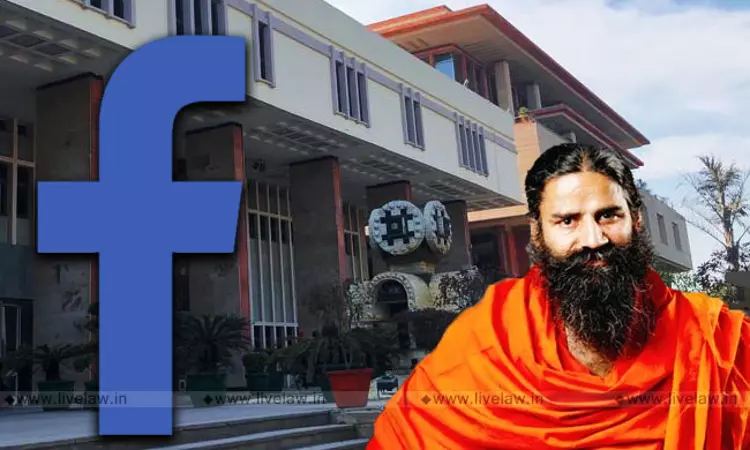'Why Are you Aggrieved By Global Injunction Order?': Delhi HC Asks Facebook In Baba Ramdev's Case
Karan Tripathi
14 Jan 2020 8:14 PM IST

Next Story
14 Jan 2020 8:14 PM IST
In a proceedings challenging the global injunction order passed by the Single Bench of the Delhi High Court, the Division Bench of Justice Muralidhar and Justice Talwant Singh asked Facebook about its stand in the present appeal. The appeal was filed against an order passed by the Single Bench of Justice Prathiba Singh imposing a global injunction against Facebook to take down defamatory...
